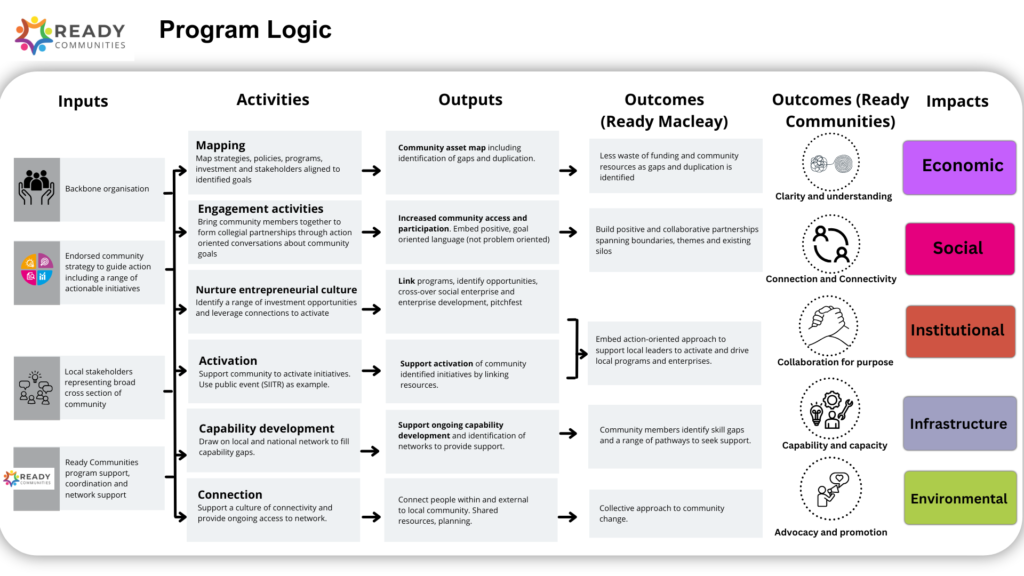Operating system
Theory of change
Our work across decades has clearly demonstrated that regional communities are constantly disadvantaged through inherent inequalities, barriers such as lacking service access and the tyranny of distance that just aren’t experienced by their city based counterparts; We have seen far too many piecemeal approaches that fail to address whole systems and while we are observing and excited about the rise of place-based practice we are yet to see an approach that can service all regional communities.
Overall, we believe that regional prosperity could be a lot easier to achieve if we work together.
Learn more about the factors influencing our theory of change below.
Regional Equality
What needs to change?
- Lack of access to networks, information, resources, and capital
- Lack of specialist skills and additional cost to source
- Increased cost in core services, Impacts are compounded for other areas of inequality including First Nations, youth, women, older generations, migrants, and health impacts
Ready Communities approach:
We focus attention towards shared goals, increasing connectivity within and across regional communities, and building capability and capacity in local leaders, institutions and supply chains.
Systemic Approach
What needs to change?
- Increasing complex pressures including demographic trends, natural disaster events, decarbonisation response, industry transition and technology advancement.
- Siloed response to complex challenges due to lack of resources, cultural influences and lack of shared information systems.
- Competing and misaligned economic development and community development functions.
- Lacking systems to track, measure and thereby value connectivity and connections that drive change.
Ready Communities approach:
We enable clarity via shared information, connectivity across community functional areas, collaborative collective response, and a shared voice in the region on addressing complex challenges.
Place-based change
What needs to change?
- Uncoordinated approaches to place-based change can be extractive and be counter-productive to the intended outcomes
- Individual initiatives can be isolated from broader change impacts and have unintended consequences in the community
- Emerging backbone structures require additional support for broader impact
- Strategic plans can sit in isolation
Ready Communities approach
Place-based initiatives supported with ‘scaffolding’ support through shared information, connected initiatives, increased institutional capability and capacity, collaborative structures and clusters, and shared promotion of community transformation.
Program logic


